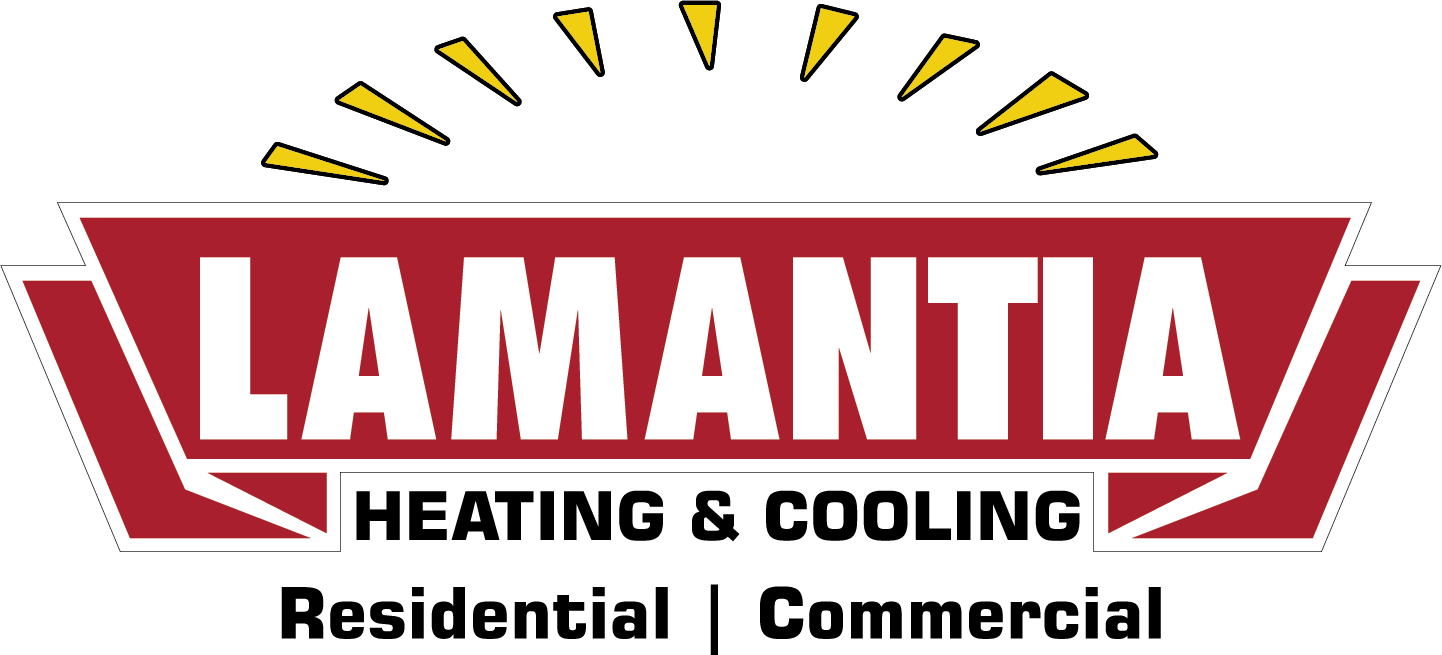Have Questions about Your HVAC System?
In this section, we’ve compiled answers to some of the most commonly asked questions to help you find the information you need quickly and easily.
Whether you're looking for maintenance tips or troubleshooting advice, you’re in the right place.
How Can I Benefit from a Service Contract with LAMANTIA Heating & Cooling Inc.?
Proper annual maintenance can go a long way in preventing future heating and cooling system problems. A service contract can actually save you money in the long haul through regularly scheduled maintenance, cleaning, filter changes, etc. Pre-season annual checkups can also catch problems before they occur and save you costly repairs.
Contractors often get very busy during summer and winter months, so it's a good idea to check the cooling system in the spring and the heating system in the fall.
Why Do I Need a Whole House Humidifier?
A whole house humidifier can actually save you money. A home with higher humidity in the winter will feel warmer, allowing you to set your heating temperature lower. It will also minimize winter-chapped lips, dry throats and other symptoms of dry winter air.
I’m sure you’re familiar with this concept from the weather we experience in Southwestern Ontario in the summer – as they say, it’s not the heat, and it’s the humidity that gets you.
What Zero Cost Things Can I Do Around the Home to Increase My Savings?
1. Lower your thermostat to 18°C (65°F) while sleeping or when you’re away.
2. When you're at home, try to keep the inside temperature below 21°C or 70°F.
3. Wear slippers or socks and a warm sweater instead of setting thermostats higher.
4. Open window coverings to let in free solar heat on sunny winter days.
5. Close window coverings to help keep heat on cold winter evenings.
6. Shut off humidifier and damper during summer cooling months.
7. Check cooler, unused rooms for signs of moisture and mold regularly.
What Low-cost Things Can I Do Around the House to Increase My Savings?
1. Install a programmable thermostat to make setting back your heat while sleeping or away easier for consistent energy savings. For every 3°C lower, you could save 6% on your electric heating costs (an average of $68/yr).
2. Make sure to shut the damper and glass doors of your open-hearth fireplace once the fire is out.
3. Use a portable space heater to heat the room(s) you spend your time in while setting your central furnace to a lower setting. Never leave a portable heater plugged in while not required or unattended.
4. Keep your central heating system in tip top shape by having it checked by a certified service professional at least once per year.
5. Change your furnace filters every 3 months.
What Other Things Can I Do to Increase My Savings?
1. Caulk and weather strip around drafty doors and windows.
2. Seal and insulate your attic hatch.
3. Seal and insulate your unused open-hearth fireplace.
4. Damp-proof and insulate your basement; an uninsulated basement can account for 25% of the heat loss in a house.
5. Buy ENERGY STAR® qualified windows and doors.
What Can I Do to Increase the Efficiency of My Air Conditioning and Heating Units?
A large percentage of older homes have ductwork seams that have never been properly sealed. This causes a tremendous loss of efficiency in moving the conditioned air around the home. As a homeowner, you can increase the efficiency of your ductwork in a few simple ways.
First, check your ducts for air leaks. Look for obvious holes, or gaps in the seams. Duct mastic or foil tape is the preferred material for sealing ductwork seams and joints. It is more durable than any available tape and generally easier for a do-it-yourself installation. Its only drawback is that it will not bridge gaps over ¼ inches. Such gaps must be first bridged with web-type drywall tape or a good-quality heat-approved tape.
If you use tape to seal your ducts, avoid cloth-backed, rubber adhesive duct tape—it tends to fail quickly. Instead, use mastic, butyl tape, foil tape, or other heat-approved tapes. Look for the CSA (Canadian Standards Association) approved logo. Remember that insulating ducts in the basement will make the basement colder. If both the ducts and the basement walls are not insulated, consider insulating both.
Water pipes and drains in unconditioned spaces could freeze and burst if the heat ducts are fully insulated because there would be no heat source to prevent the space from freezing in cold weather. However, using an electric heating tape wrap on the pipes can prevent this.
Afraid to tackle this on your own, ask us. Either way, be sure to get professional help when doing actual ductwork. A qualified professional should always perform changes and repairs to a duct system.
What Is So Special about Energy Star® Certified Products?
1. Not all heating, ventilation, and air conditioning (HVAC) equipment is equal. As much as half of the energy used in your home goes to heating and cooling. So making smart decisions about your home's HVAC system can have a big effect on your utility bills and your comfort.
2. Heating and cooling costs account for nearly half the home's total energy bill. If your central air conditioning unit is more than 10 years old, replacing it with an ENERGY STAR® certified, high-efficiency model could cut your cooling costs by 30%.
3. ENERGY STAR certified central air conditioners have a higher seasonal energy efficiency ratio (SEER) than standard models, which makes them about 14% more efficient than standard models. The higher the SEER, the greater the efficiency. Since sizing and proper installation of a central air conditioning system are critical to energy efficiency and home comfort, it is important to hire a qualified technician.
4. Heat pumps have a higher seasonal energy efficiency ratio (SEER) and heating seasonal performance factor (HSPF) than standard models, which makes them about 8% more efficient than standard new models and 20% more efficient than what you may already have in your home. If you currently have electric baseboard heaters or are heating with electricity, you should consider converting to a more efficient heat pump unit.
I'm Still Using Baseboard Heaters. Is There Anything More Efficient That Will Save Me Money?
If you are still using baseboard heaters or electrical heaters to heat your house, you should consider converting to a heat pump. Heat pumps are the most efficient form of electric heating, providing up to three times more heat than the energy they use. Today's heat pump can reduce your electricity use for heating by approximately 50% compared to electric resistance heating such as furnaces and baseboard heaters.
A heat pump does double duty as a central air conditioner by collecting the heat inside your house and pumping it outside. There are three types of heat pumps: air-to-air, water source, and geothermal. They collect heat from the air, water, or ground outside your home and concentrate it for use inside.
How Often Should You Service Your Furnace?
It is advisable to get your furnace serviced annually before the start of the season. Regular maintenance helps avoid problems, increases lifespan, and enhances efficiency.
When Should I Consider Replacing My Furnace?
Furnaces typically last 15-20 years. If your furnace is nearing the end of its lifespan, experiencing frequent breakdowns, or costing a lot to repair, replacing it with a new, energy-efficient model might be more cost-effective in the long run. A new furnace will give you peace of mind with a 10 year warranty.
What Are Some Ways to Save Money on Furnace Repair?
Regular maintenance prevents serious breakdowns, avoiding major and expensive repairs. Hence, by regularly maintaining your furnace, you can avoid critical issues.







